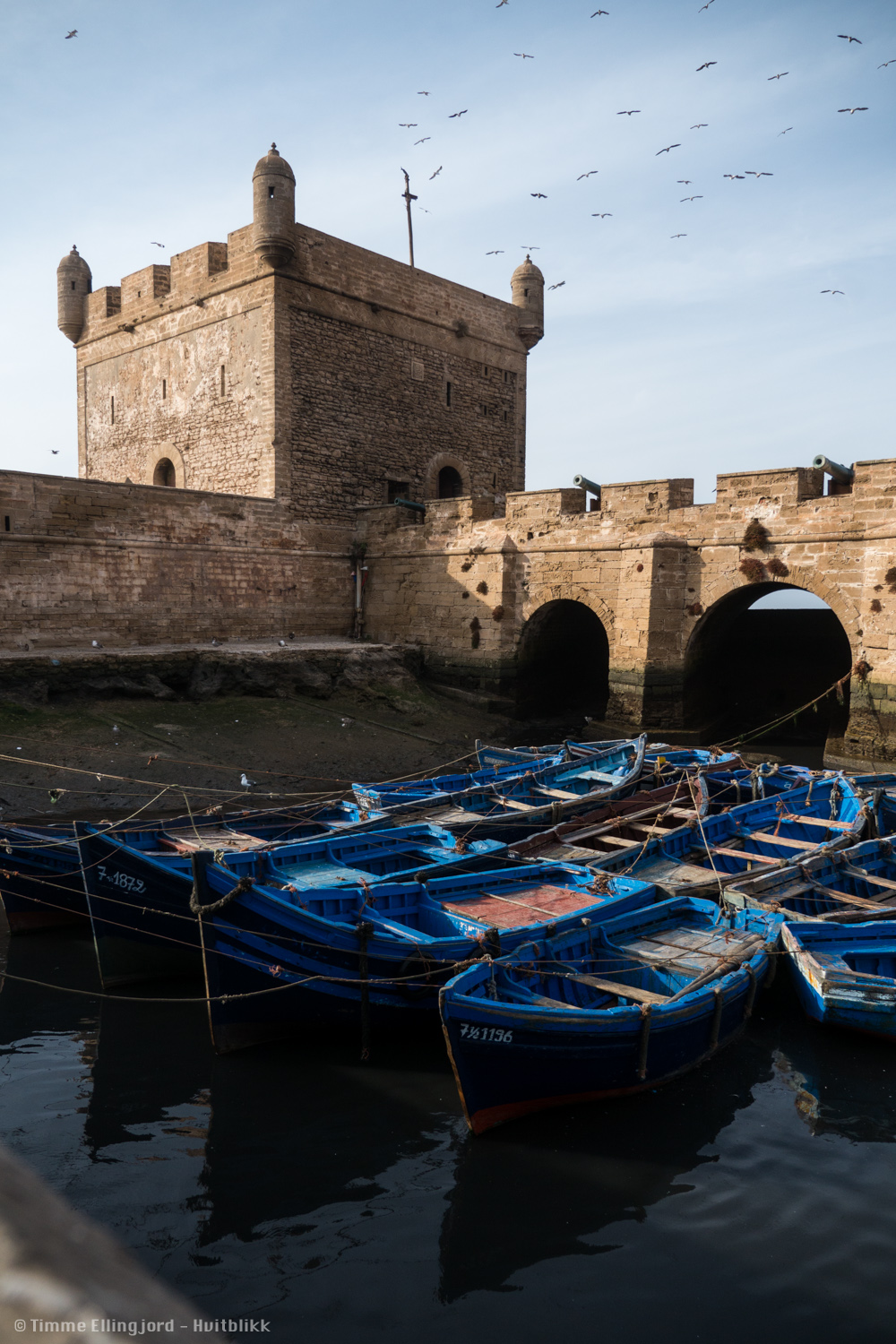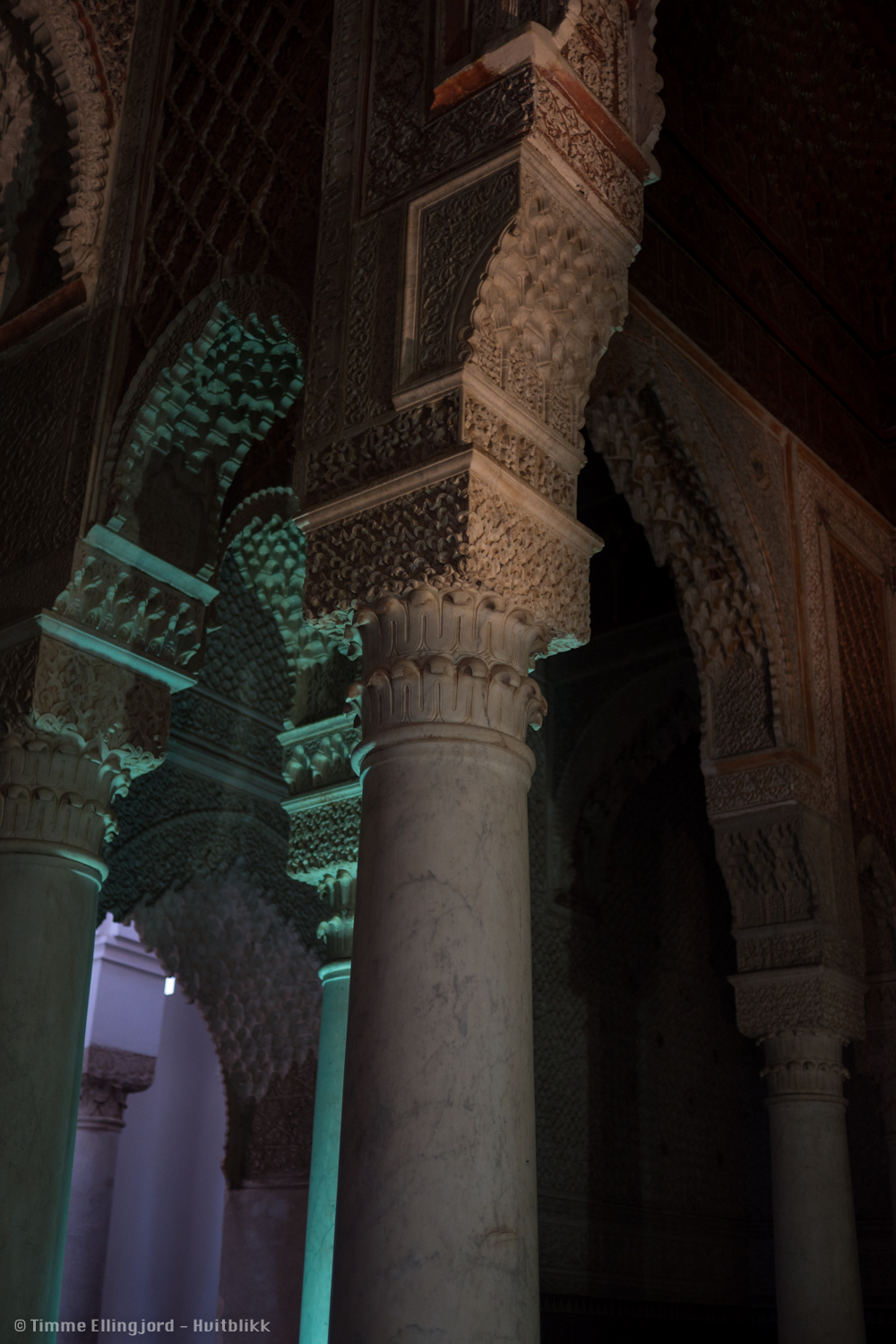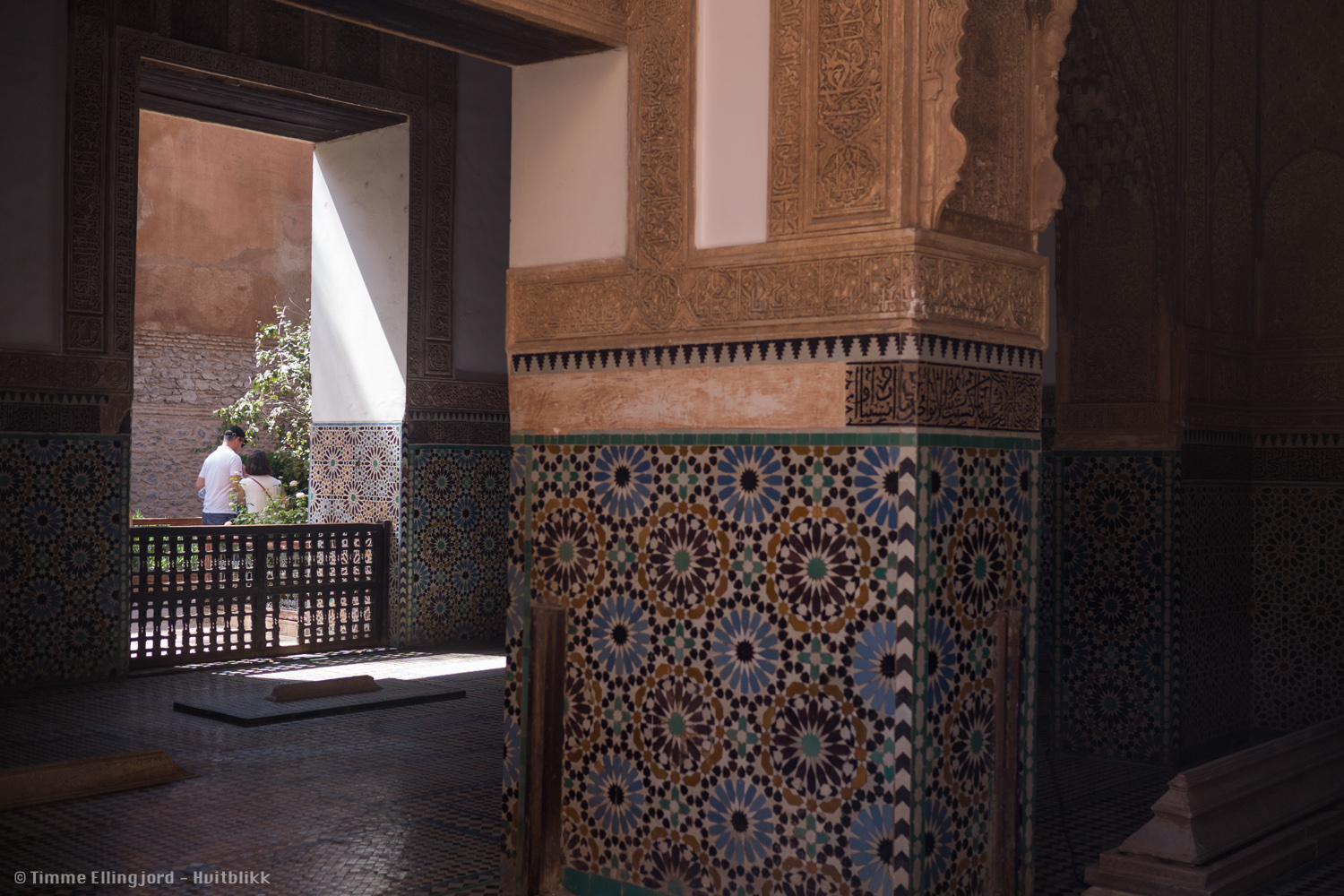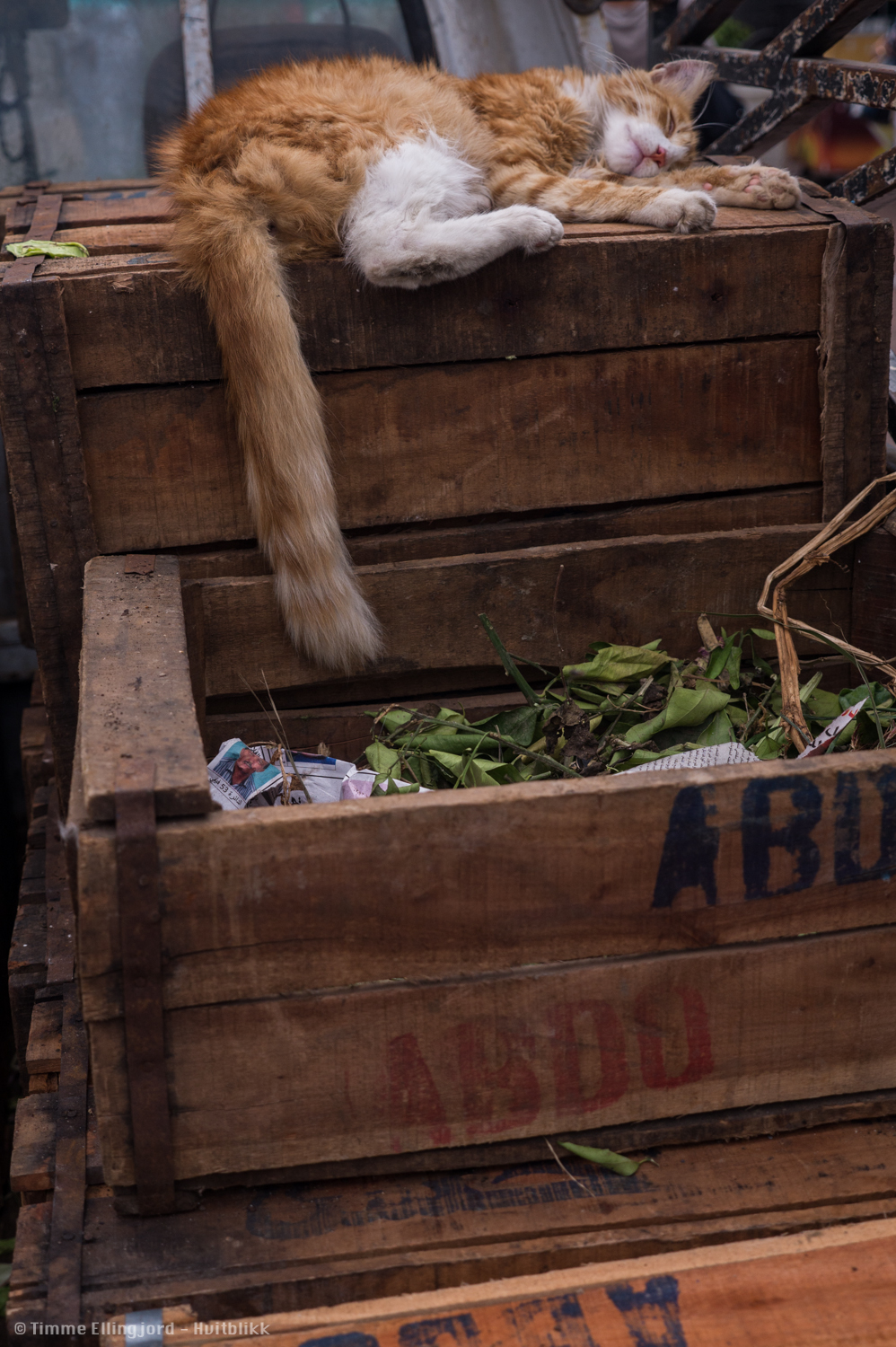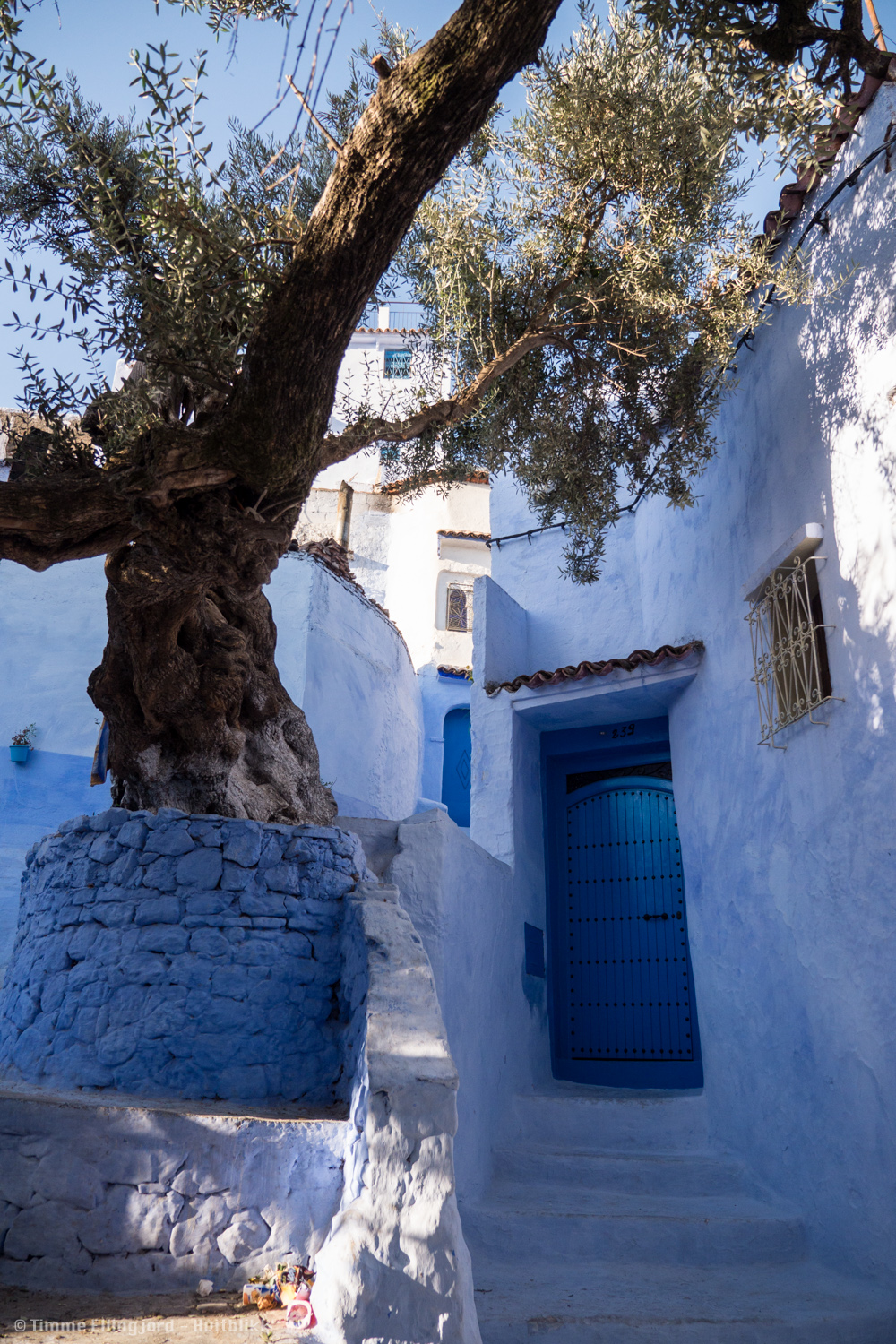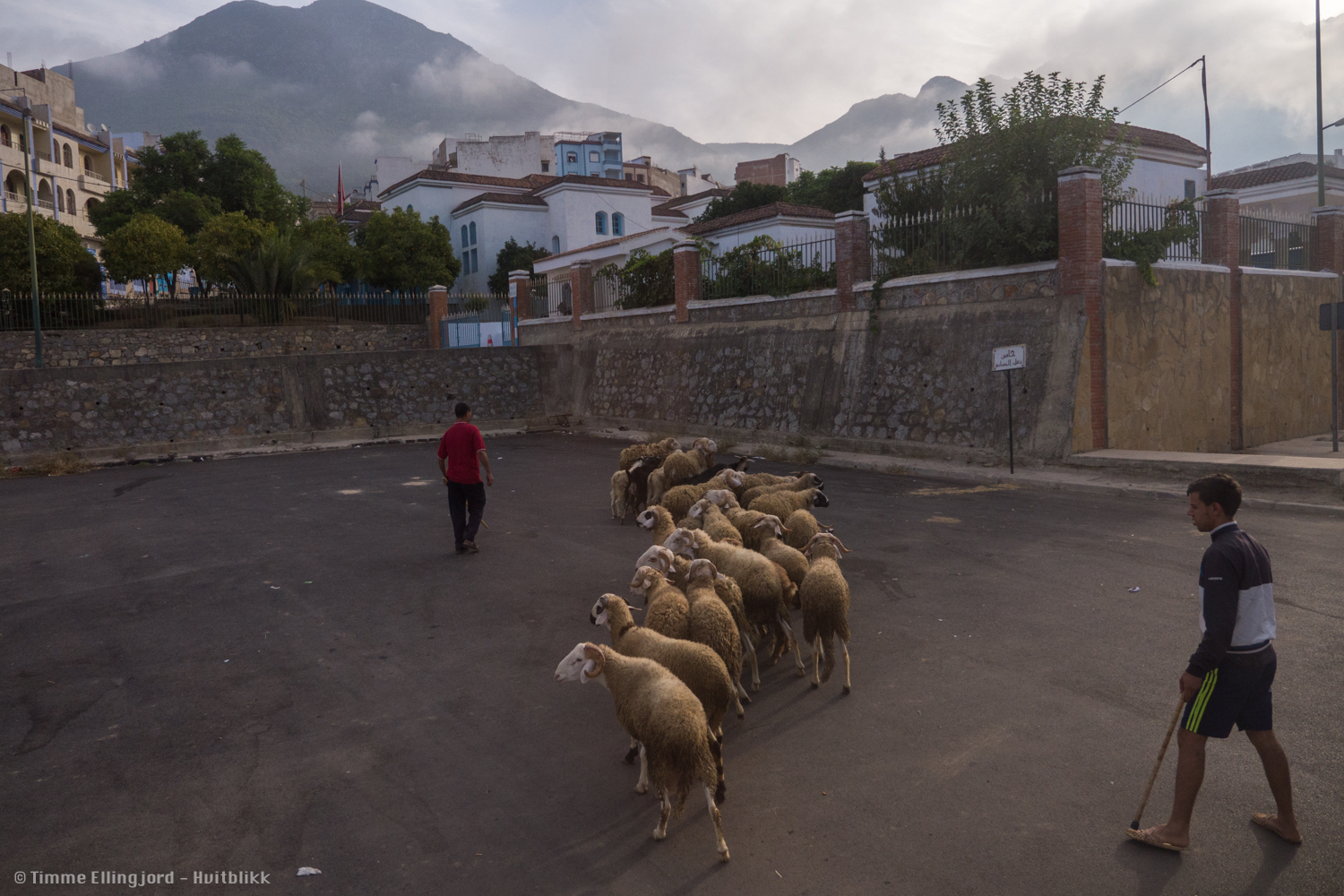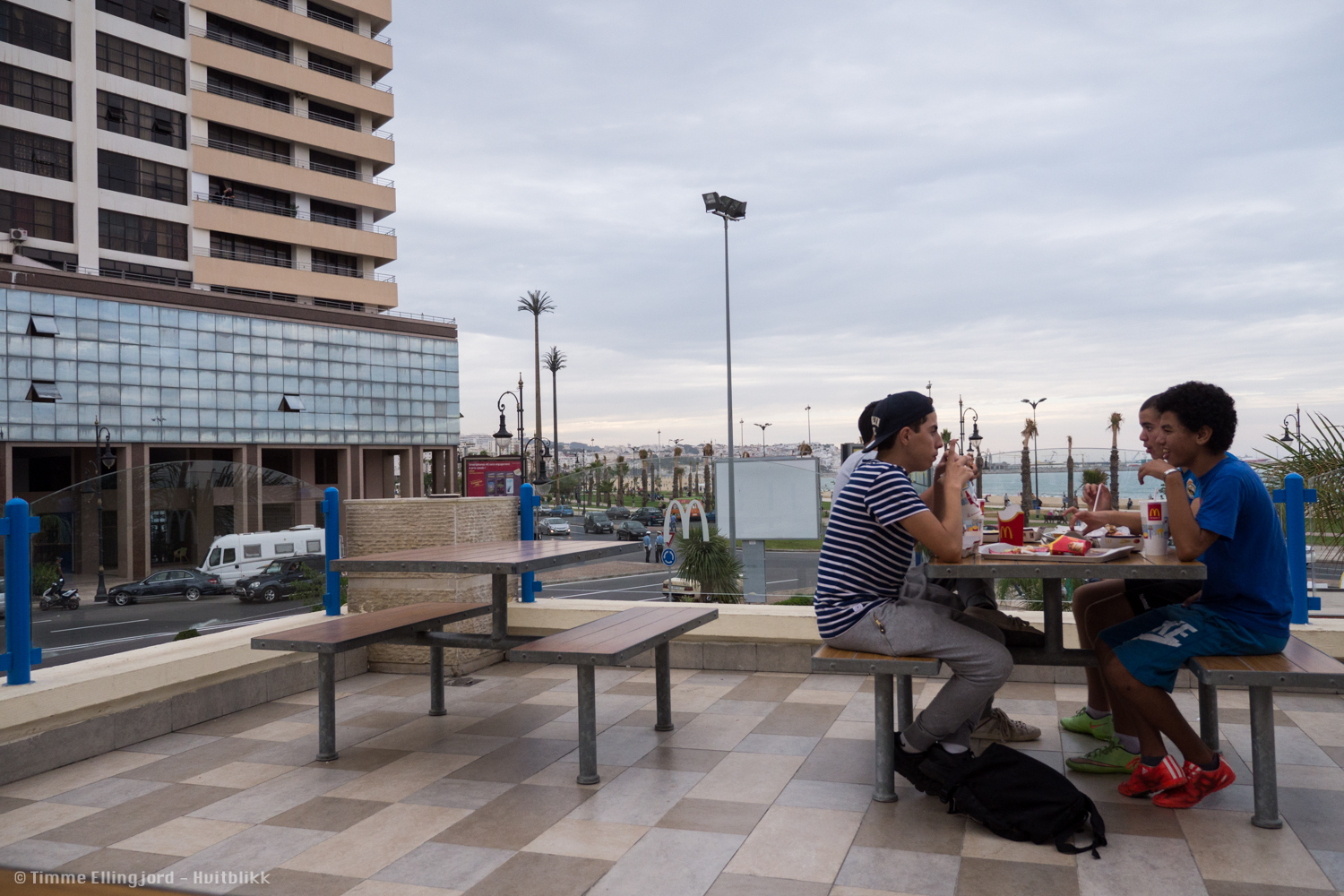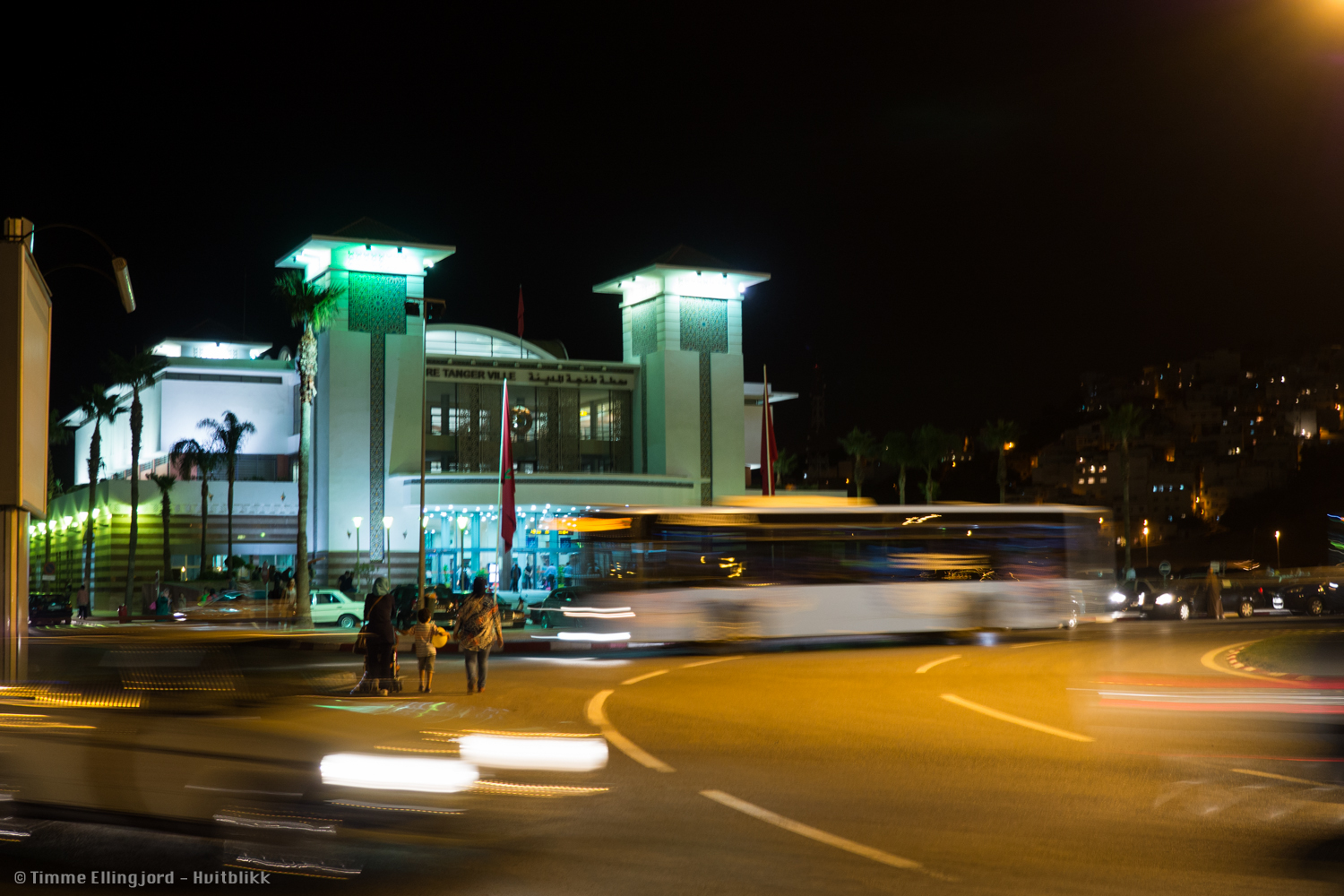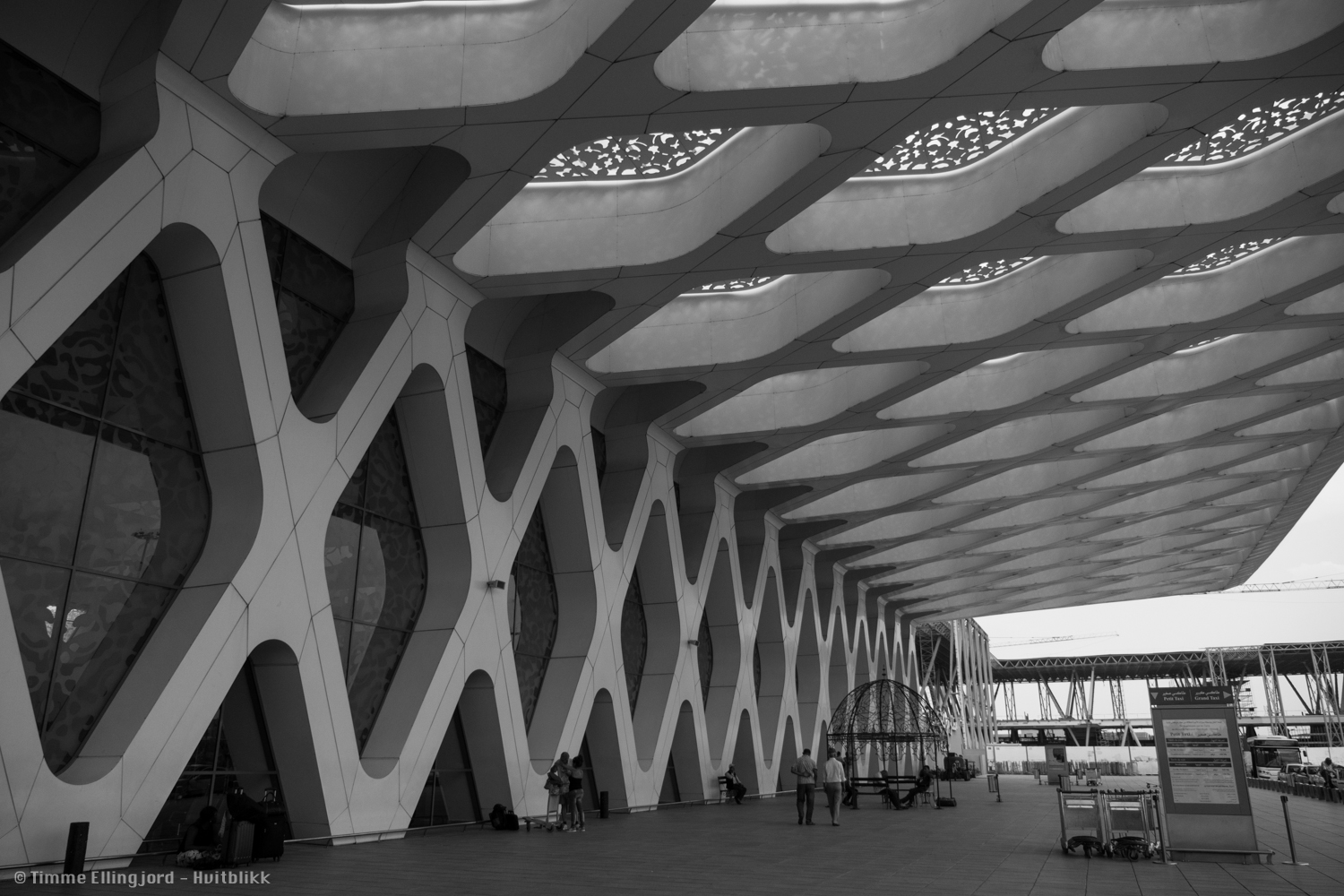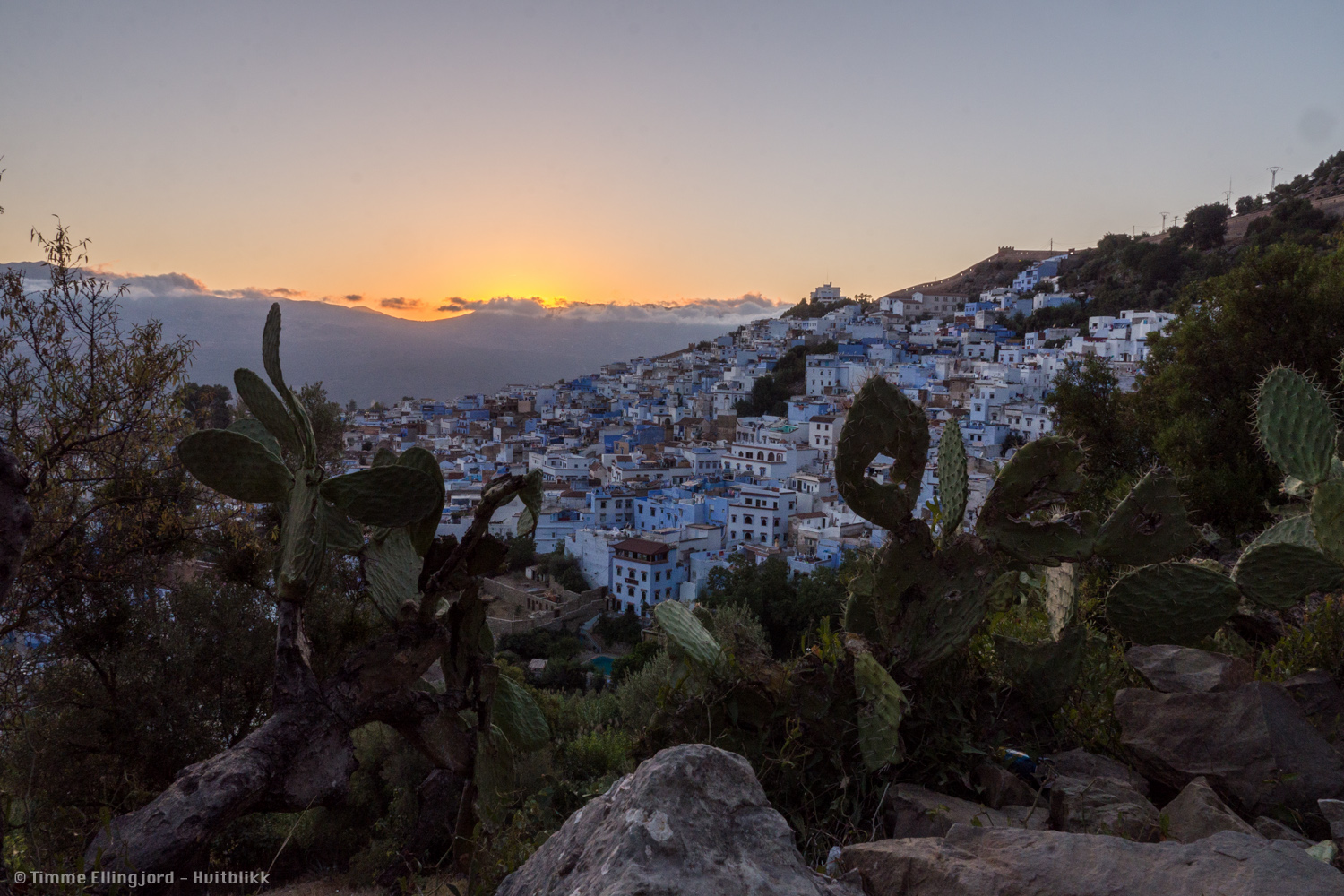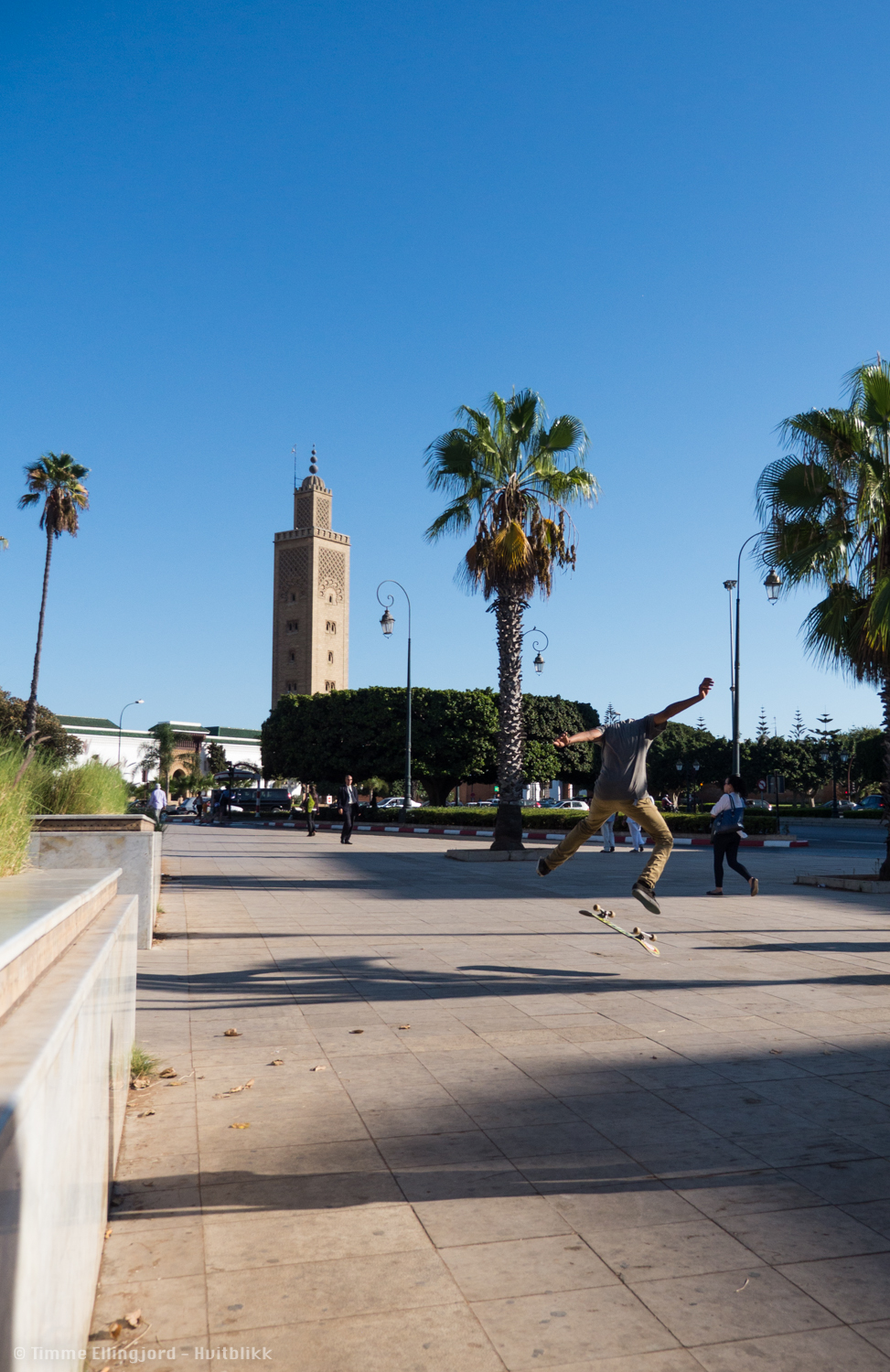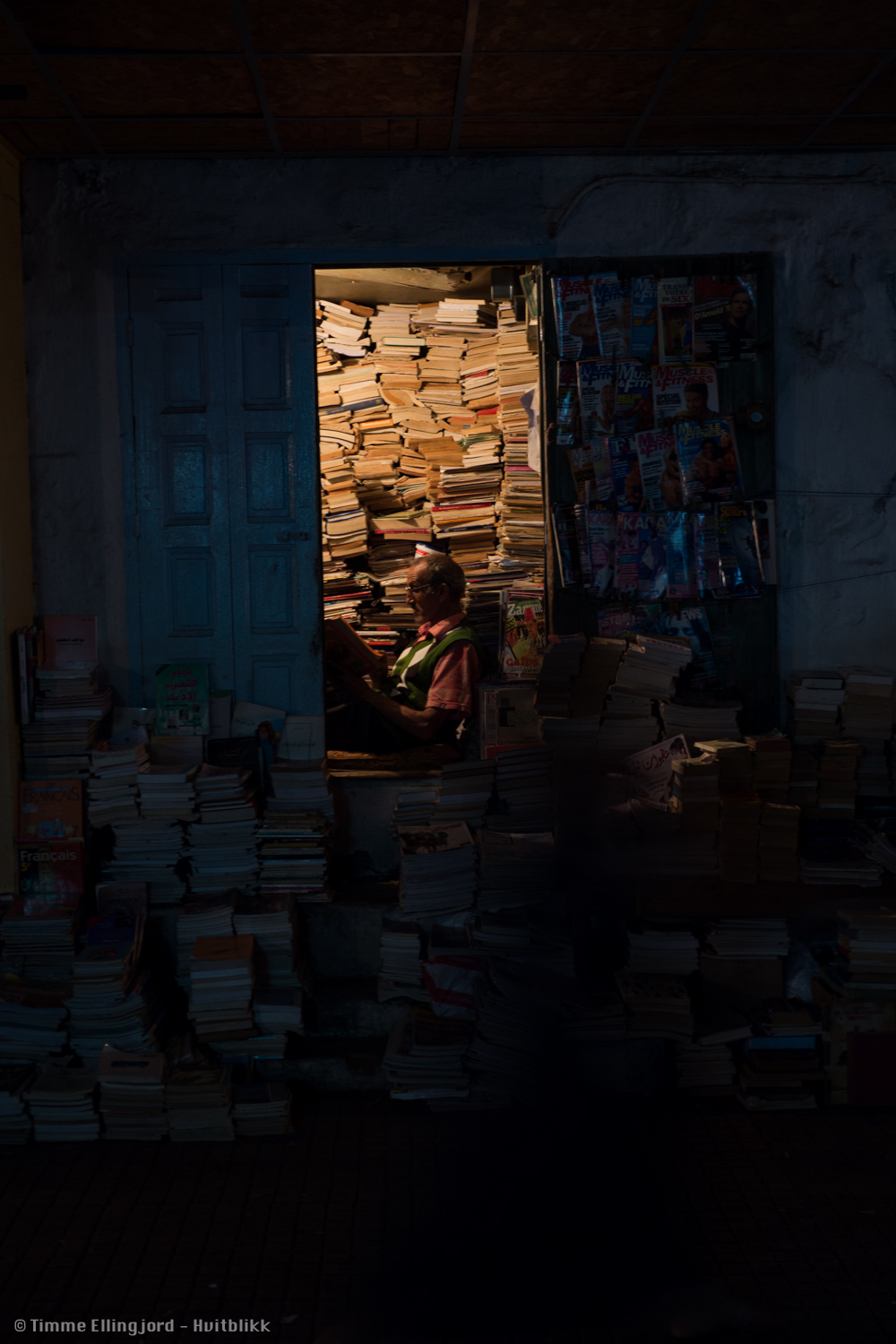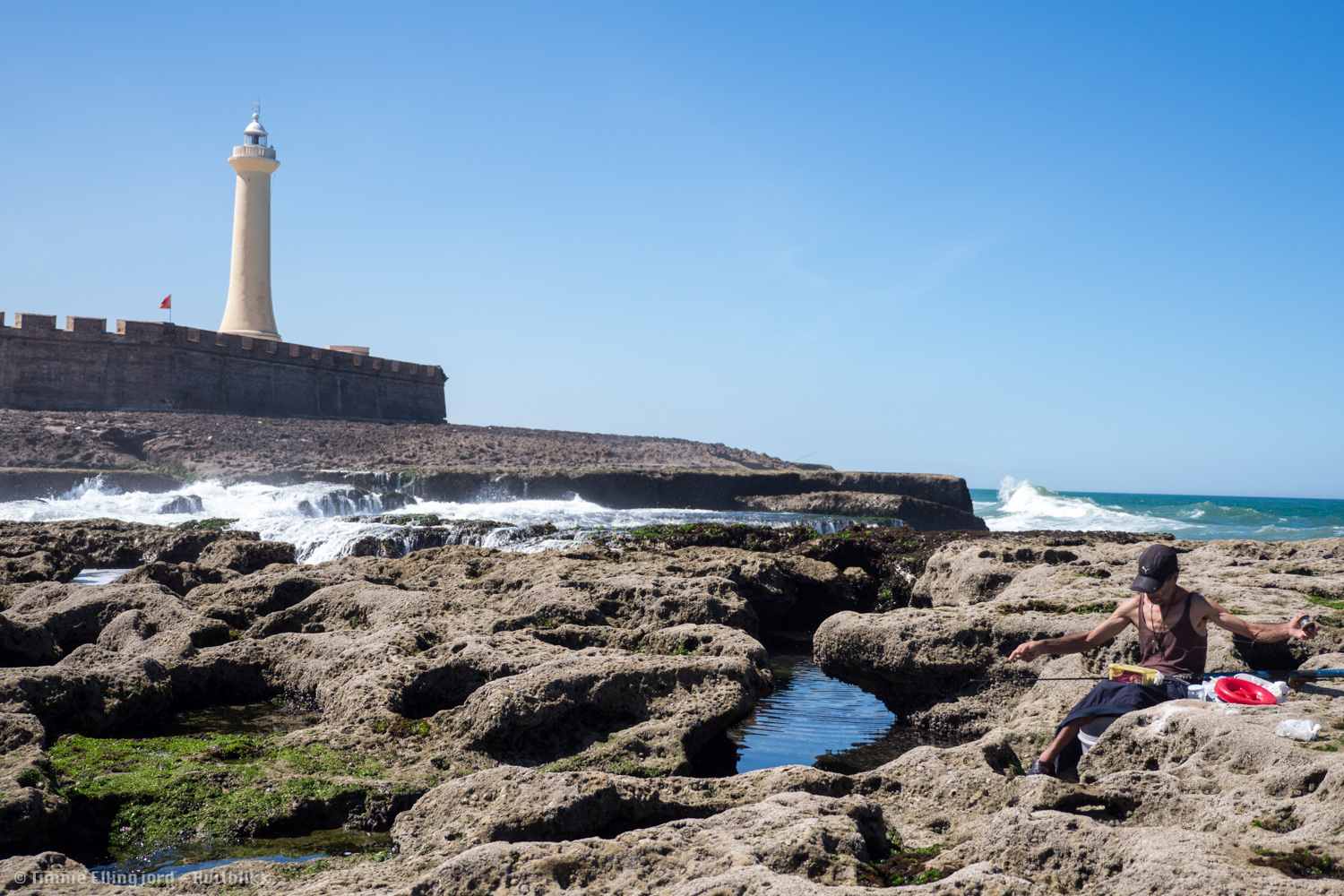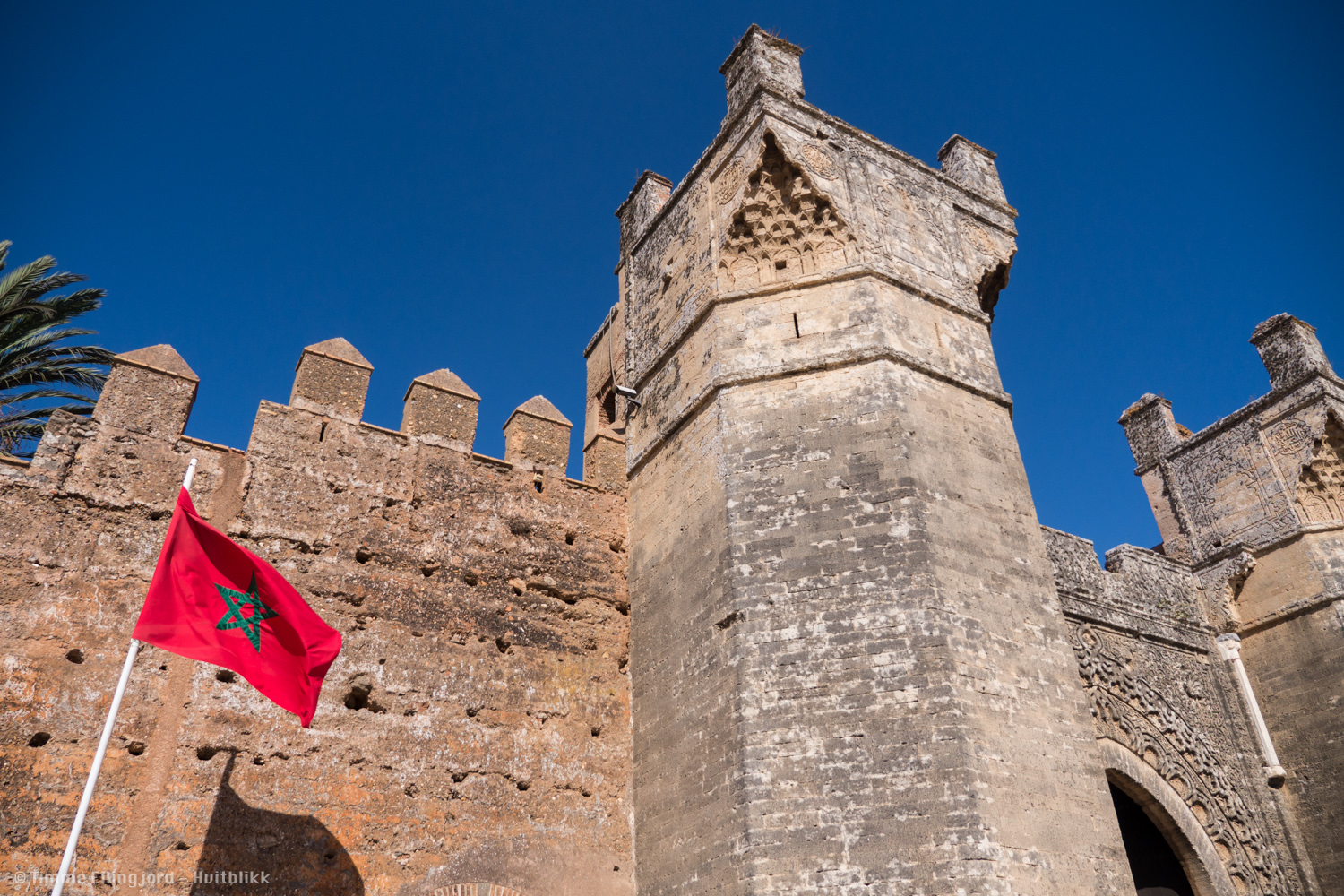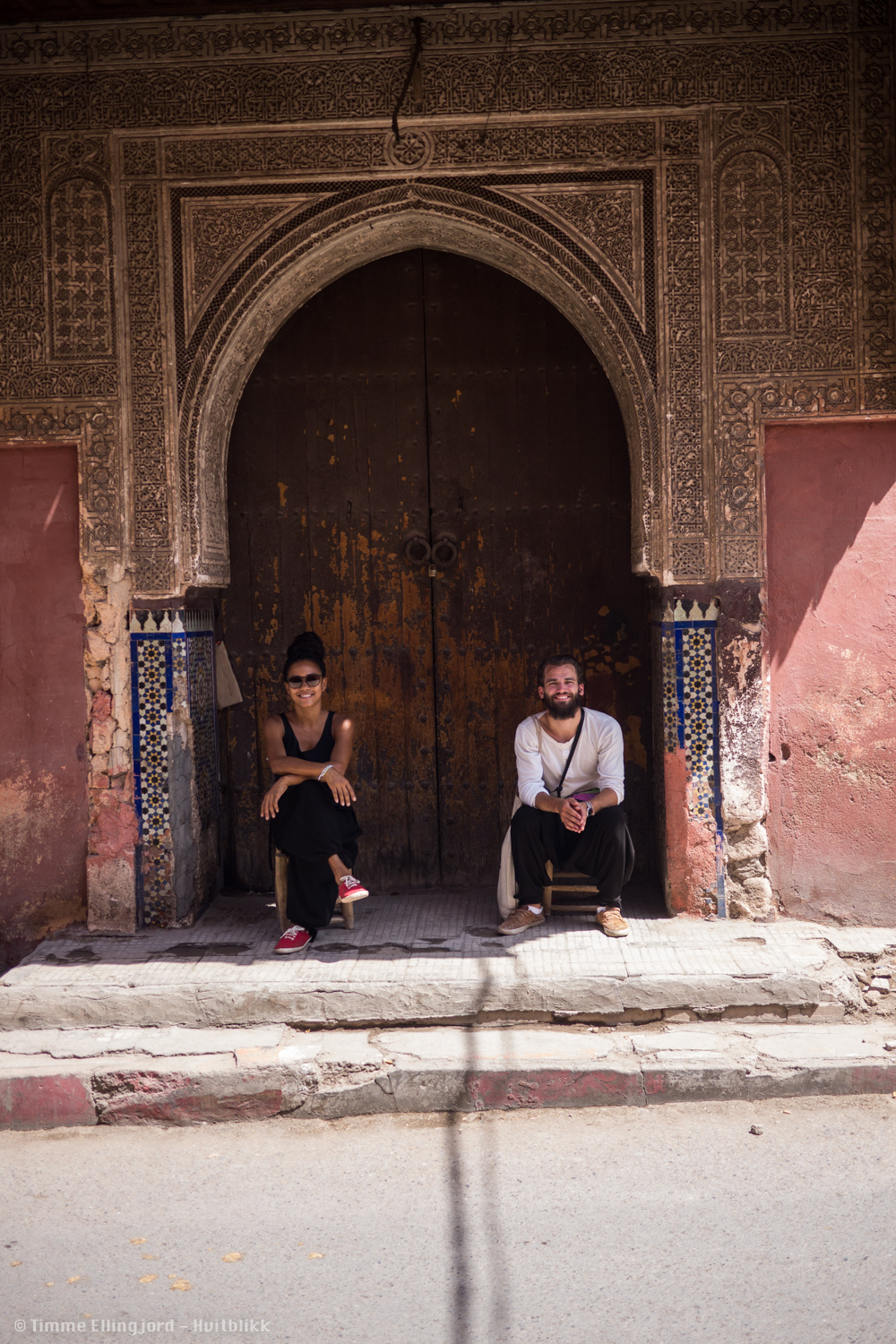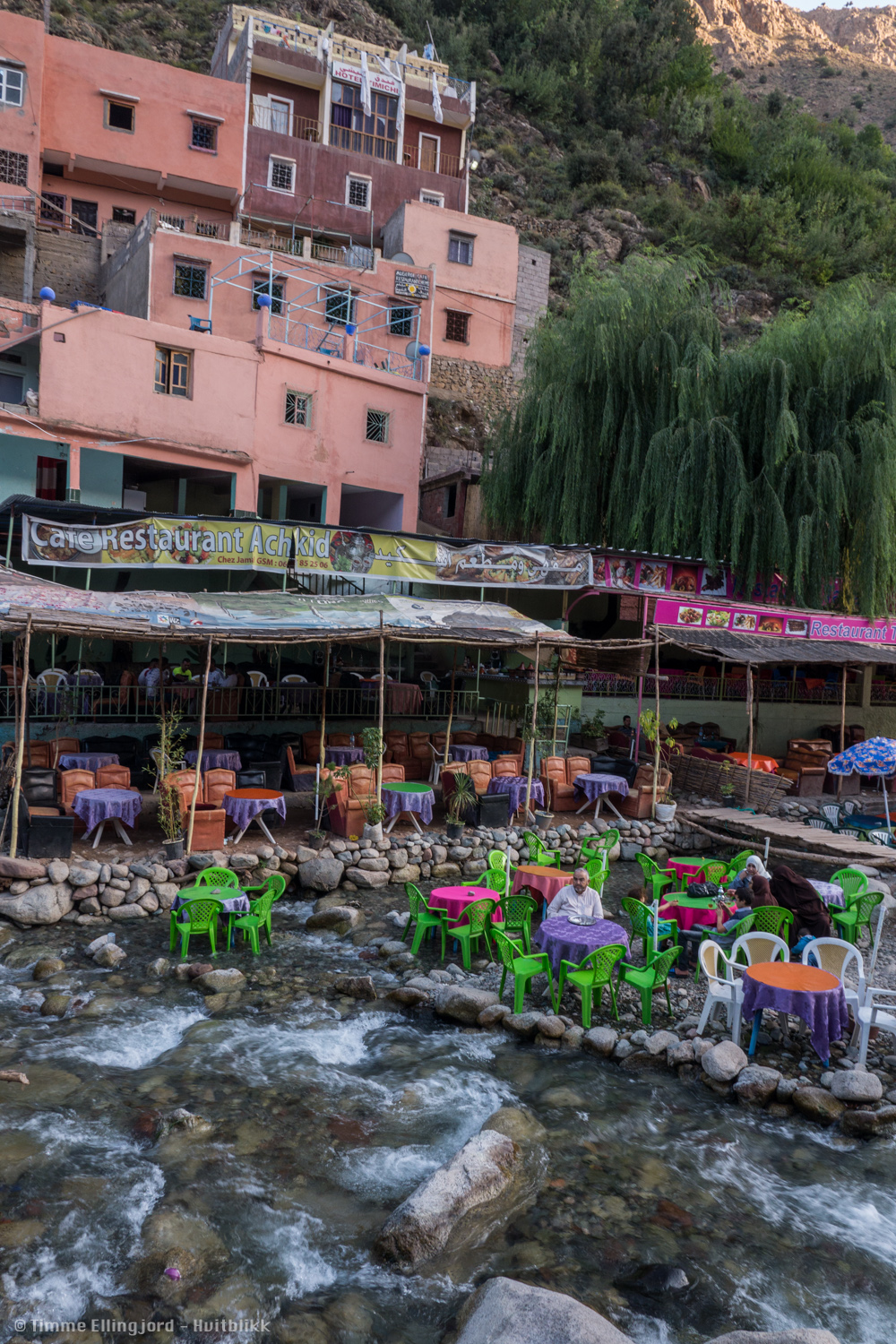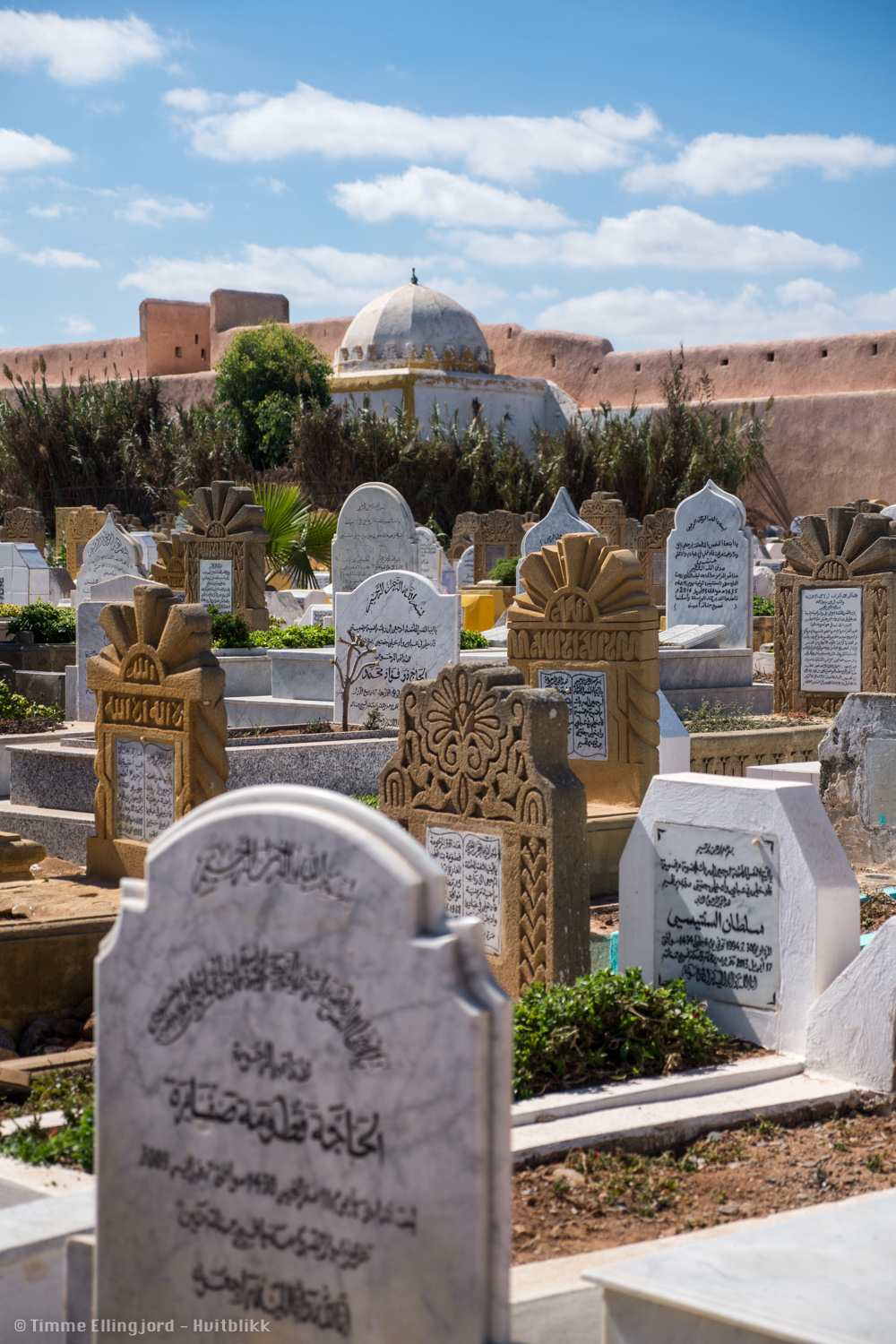If I was to mention one thing about Morocco, it would be the constant scent of mint. One could smell it everywhere. On the streets, at home, out in the wild and at the market. However, although the scent of mint dominates, it is not the only smell. Morocco is a orchestra of different scents. A quick stroll down the street or at the market place brings you through a hodgepodge of different smells; from the delightful scent of freshly cut cactus fruit, to the rank smell of slaughtered sheep.
Marrakech is good in so many different ways. Not only as a great starting point for further traveling in Morocco, but also as a fine introduction to the country itself. For centuries the city had a reputation for its bazaars and markets, and it still does. Since ancient times people have been travelling from afar, visiting the market to trade. It is often described as North Africa's largest. The market has changed significantly, because the products being sold are more or less local, if not Chinese. Although it is not what it once was, in my opinion the market is absolutely necessary to visit. Visiting the market is an interesting experience itself, but can also be perceived as a bit of an ordeal. Hola amigo, bonjour monsieur, Ali Baba (Ed. Due to the author's beard growth), are some of the many hecklers you have to make yourselves familiar with. Sellers in Morocco in general, and in Marrakech specifically, may well be perceived as very unpleasant and aggressive. The sellers do not give up either by polite rejection, nor by ignoring them, so be prepared to be named a bad person more than once.
Oasis.
The Oasis festival in Marrakech
For those that may be interested, Marrakech has a lot to offer also to the modern western man. The city has plenty of western shopping opportunities, golf courses, water parks and a number of possibilities for the more party-centered people. I had the opportunity to attend the newly started electronica festival "Oasis", a festival with both world-known DJ’s, and local stars. Although the majority of the participants were of foreign origin, the festival gave an important voice in how contrasting Morocco as a country really is, with its huge abundance of drugs and alcohol. An apparently very conservative country, but also with a more or less secretive underground.
myself at the top of North Africa. dont pay
to much attention to the gratify
Mountains are perhaps what Norwegians associate the least with Morocco, but this part of the country is still some of the best that Morocco has to offer. The Atlas mountains, which rises so high above the southern part of Morocco, may seem alluring to everyone. With its barren and sometimes snowcapped peaks. It was here I decided to go at first, during my journey. This part of Morocco is the centre of the Berber community, which has its own distinctive culture and language, even though it all may be seen as a close mixture. From Marrakech into the mountain villages the distance is no longer than a few hours, when travelling by the local buses. As a new-coming tourist you will have offers standing in queue for you as soon as you arrive in town, just like so many other places in Marocco. Here you will be offered both maps and guides, but if one is a little experienced in mountain sand well prepared, it’s not necessary at all. My goal for the trip is to reach Jebel Toubkal, North Africa's highest peak.
The french alpine clubs mountain refuge, at the foot of Jebel Toubkal. The refuge was taken by an avalanche some years ago, but are still an popular destination both winter and summer.
all the things going up to the mountain refuge are brought up by donkys
Having covered more than half the terrain, I arrived in a French Alpine Association hut at 3,200 meters. Here one can enjoy both a good dinner and a good night's sleep, both highly valued before heading towards the summit the next day. At the dinner, I became acquainted with a nice group of Swiss pensioners, who eventually invited me to accompany them at dawn for the last part of the trip. The hike is not difficult itself, but even if it’s well above thirty degrees down in Marrakech, there has been frost up here nighttime. But if you look away from the frosty stones, the trip itself isn't difficult - it is suitable for everyone. The only thing you must pay attention to is the height. If there is something the average John Doe surely isn't used to, then it's the height and lack of oxygen one experiences even in such medium high mountains like this. Personally, I was very happy that I chose to spend a night at the mountain hut, it gave me just enough energy to ensure that the remaining trip was considerably more comfortable then it could have been.
view from the Atlantic Hostel in Essaouira
One doesn't have to climb high mountains like Jebel Toubkal to get out in nature in Morocco. Marrakech has a number of interesting natural phenomena located in short distances from the city. Some of the more popular, both for locals and for tourists, is a series of waterfalls such as those in the Ourika-Valley just a couple of hours into the mountains. If doing a trip to the desert or the ocean, it is advisable to spend more time than just one day, but several of the coastal cities can also be done as a day trip.
The harbor steems with life. I have replaced the alpine mountains for the blue Atlantic Ocean, and am now standing, admiring the colourful fishing boats which have just arrived in the port of Essaouira full of fish. Alongside the waterfront there are a mix of locals and tourists, taut fish smell and screams from seagulls. Here you can buy a bag of sardines, either to bring home or to get them grilled by one of the local street restaurants. The city is known as one of the better kite surfing spots in Morocco, and offers both fine beaches and a particularly interesting Medina, with Portuguese origin. Here, the city wall meets the grand blue ocean in a blissful blend of fortifications, white houses and the area's distinctive blue fishing boats. The town is only a few hours from Marrakech, and one can feel free to take a day trip here, although it is highly recommended spending more time here.
the wall of Essaouira
Modern capitol
As capitals so often tend to be, if one ignores the more prominent European capitals, Rabat is no exception from being less tourist friendly and uninteresting. At least it has reputation to be. Upon my arrival in Rabat, my expectations were therefore low, but the city took me by surprise. Despite having difficulties finding a place to stay overnight, all hotels with a more or less reasonable price were taken, it was a pleasant stay. Rabat is considerably more pleasant to move around in than other Moroccan cities, with a completely different approach from the local street sellers, and with virtually no aggressive stance. Here you can walk the streets, talk to the locals whilst lowering your shoulders a little more. Isn't that what holiday is all about? Rabat also has a lot of interesting places; everything from surf beaches for the sporty, to different museums for the more cultural.
Fes at sunset
Many of Morocco's ancient cities have previously been the country's capital, Fes is one of those. With over 1,200 years of history, the city is packed with history, and is considered one of the major centres in the period usually referred to as the golden age for Islamic Civilization. The city has one of the best-preserved medinas in the Arab world, and is with its small streets one of the world's largest car-free urban areas. Fes has both royal palaces and massive city walls, often compared to Jerusalem's own in its former glory, but the city is probably best known for its tanneries, where they both colour and process leather. Fes is known for its excellent leather products, and if you are interested in such, you should definitely pay a visit to the city markets. Tanneries themselves are also a tourist event, and to see these, one doesn't have to walk for long before being offered a tour, with an obvious expectation of payment.
having dinner in the Marrakech bazar
Marocco with its many markets, colours and culture is a really nice place for an eager photographer, but does at the same time offer a challenge. Moroccans are rarely happy to be photographed, often because of their religion, sometimes not. Photographing policemen and public buildings belonging to the king, and of course especially the king himself, shouldn't be photographed. I got a glimpse of the King when France's President Hollande was on a official visit, but pictures were rather difficult to get, I was already aware of the consequences of even trying. Some days in advance, I had tried to photograph a group of policemen while enjoying their morning tea, an attempt that ended with the bus I sat in was stopped, and the author himself was hauled off as a little boy between the arms of two big policemen. Fortunately I managed to erase the pictures before the policemen got hold of the camera, but both me and the camera disappeared nevertheless for some minutes into a dark little room. A little scary, but luckily the bus waited.
The blue city, Chefchaouen, is a city you must visit if you are traveling in Morocco. Why you should visit the city, will vary from who you ask. The beautiful scenery and the blueish buildings are my arguments, a great place for a few days rest. However, if you ask a significant percentage of the average backpacker, they would undoubtedly mention its reputation for being Morocco's hashish-capital. Here, the local residents don’t just come up to you to offer you guidance, or to sell you their carpets in the bazaar, they also come up to you offering to show their local cannabis plantation. Generally you get an offer to purchase hashish quite often in Morocco, but it occurs more frequently in the blue city. The offer is what capitalists would love to have pointed out, in accordance with the demand, because there is certainly a greater number of "drug tourists" in the country.
the blue city seen from the hills.
Morocco with its magnificent scenery, colourful markets and sunny beaches, definitely is a favourite destination for most, if you throw in the simple but delicious traditional food in the calculation as well, everything should be in the box. But in spite of this, I would not recommend Morocco as a future destination, unless one disregards the beautiful mountains. Since I traveled alone for the most part, I noticed that it was rather difficult to make contact with the locals, which for me is the point of such a journey. It turned easily into something quite tiring, when people were always trying to sell you everything at all times; jars, fruit, clothing, hashish or cars, you just never got peace. But despite of this, it is hard not to see Morocco as a cultural experience that you definitely should experience, as long as you embrace yourself for some intense shopping trips. If you are one of those who are stressed by going to the local mall in pre-Christmas time - well, then you might wanna sit this one out.
Great, but simple food in the maroccan street kiosks, but be aware that your stomach may have problems
time to go home




















